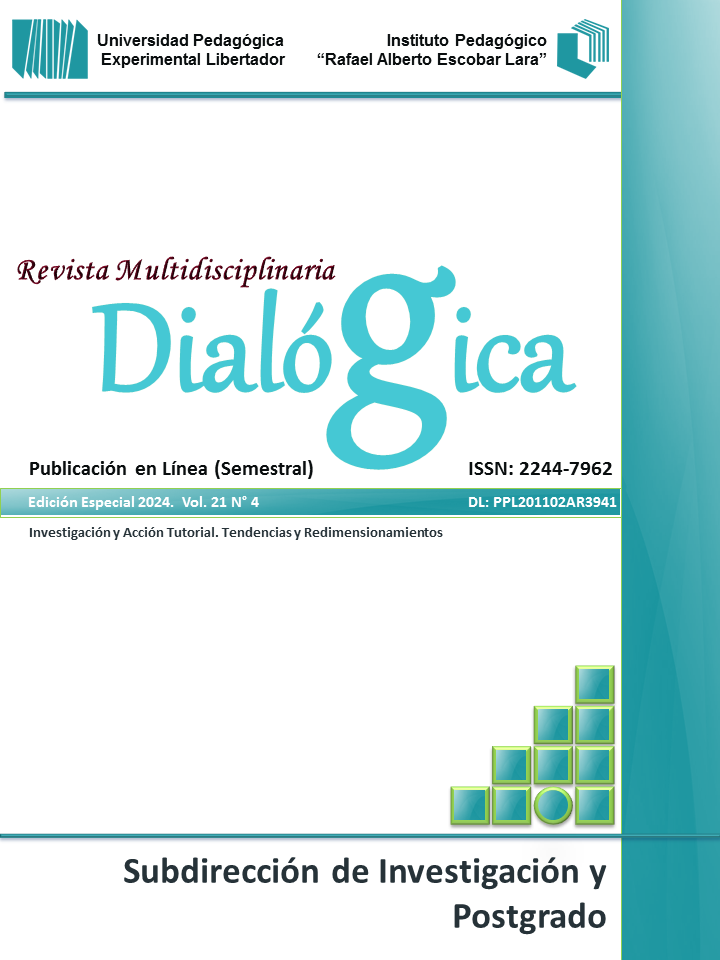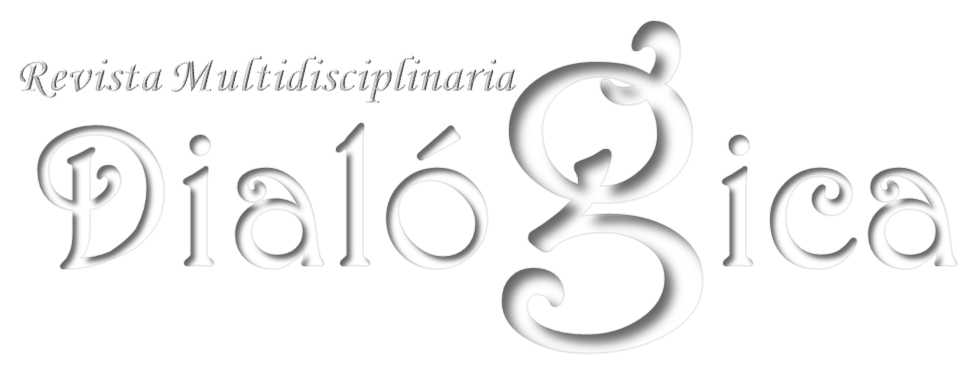SOCIETY 5.0: TUTORIAL TREND AT THE SERVICE OF LEARNING IN RESEARCH
DOI:
https://doi.org/10.56219/dialgica.v21i4.3316Keywords:
Learning, research, society 5.0, tutorial trendAbstract
The presented discourse studies the corollary of a literary review, on the foundations of society 5.0, in the learning of research in this digital age that transforms the thinking of researchers, theorists and tutors, being a tool that helps the development of disruptive critical ideologies, to interact better in a technologically interconnected society. This virtual revolution is bringing a more human education, centered on the socio-emotional development of the being, creating solutions that improve life through assertive responses to the different situations presented in the social reality. For greater understanding, a Hermeneusis is applied to treaties with ideas alien to several illustrious, where it is highlighted that the society 5.0, forms an essential part within the new tutorial trend, being transformed from presencial-virtual, which leads us to train and prepare biofilo tutors to cover and change research paradigms.
References
Adell, J. y Castañeda, L. (2012). Tecnologías emergentes, ¿Pedagogías emergentes? En J. Hernández, M. Pennesi, D. Sobrino y A. Vázquez (Eds.), Tendencias emergentes en educación con TIC, 13-32. Barcelona: Asociación Espiral. https://digitum.um.es/digitum/bitstream/10201/29916/1/Adell_Castaneda_emergentes2012.pdf
Albirini, A. (2006). Teachers’ attitudes toward information and communication technologies: the case of Syrian EFL teachers. Computers & Education, 47(4), 373-398. doi:10.1016/j.compedu.2004.10.013 DOI: https://doi.org/10.1016/j.compedu.2004.10.013
Deguchi, A., Hirai, C., Matsuoka, H., Nakano, T., Oshima, K., Tai, M., y Tani, S. (2020). What is society 5.0. Society, 5(0), 1-24. https://doi.org/10.1007/978-981-15-2989-4_1 DOI: https://doi.org/10.1007/978-981-15-2989-4_1
Matheson, R. (2020). Customising the future-The next industrial revolution. Nickel Institute. http://nickelinstitute.Org/blog/2020/november/customising-the.-next.industrial-revolution/
Moreno, O. A. y Sola, M. T. (2005). La acción tutorial en el contexto del espacio europeo de educación superior. Revista Educación y Educadores, 8, 123-143. https://www.redalyc.org/pdf/834/83400810.pdf
Morrar, R., Arman, H., y Mousa, S. (2017). The fourth industrial revolution (Industry 4.0): A social innovation perspective. Technology innovation management review, 7(11), 12-20. Doi: 10.22215/timreview/1117 DOI: https://doi.org/10.22215/timreview/1117
Rifkin, J. (2011). The Third Industrial Revolution. How Lateral Power is transforming energy, the Economy and the world. Palgrave Mscmillan: New York.
Schwab, K. (2015). The Fourth Industrial Revolucion. Foreign Affairs. https://www.foreignaffairs.com/world/fourth-industrial-revolucion.
Xu, M., David, J. M., y Kim, S. H. (2018). The fourth industrial revolution: Opportunities and challenges. International journal of financial research, 9(2), 90-95. doi:10.5430/ijfr.v9n2p90 DOI: https://doi.org/10.5430/ijfr.v9n2p90
Downloads
Published
How to Cite
Issue
Section
License
Copyright (c) 2024 Norvelis Blanco

This work is licensed under a Creative Commons Attribution-NonCommercial-ShareAlike 4.0 International License.


 @revistadialogica
@revistadialogica DialogicaUPEL
DialogicaUPEL RevistaDialogicaUPELMaracay
RevistaDialogicaUPELMaracay dialógicaupel@gmail.com
dialógicaupel@gmail.com dialogicaupel.blogspot.com
dialogicaupel.blogspot.com https://issuu.com/dialogicaupel
https://issuu.com/dialogicaupel https://revistas.upel.edu.ve/index.php/dialogica/
https://revistas.upel.edu.ve/index.php/dialogica/









